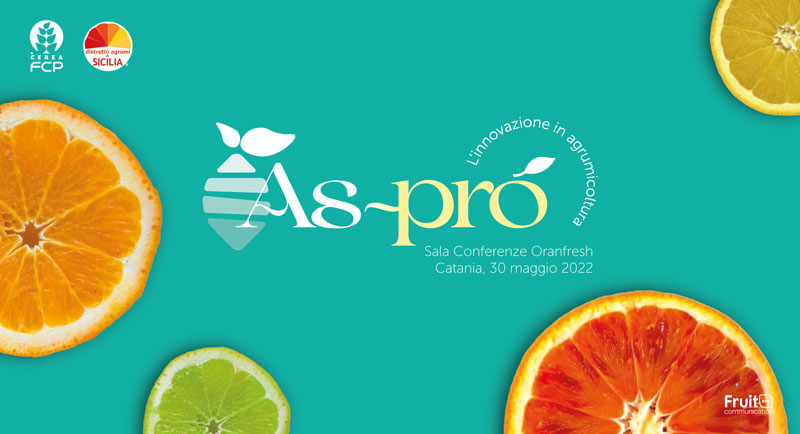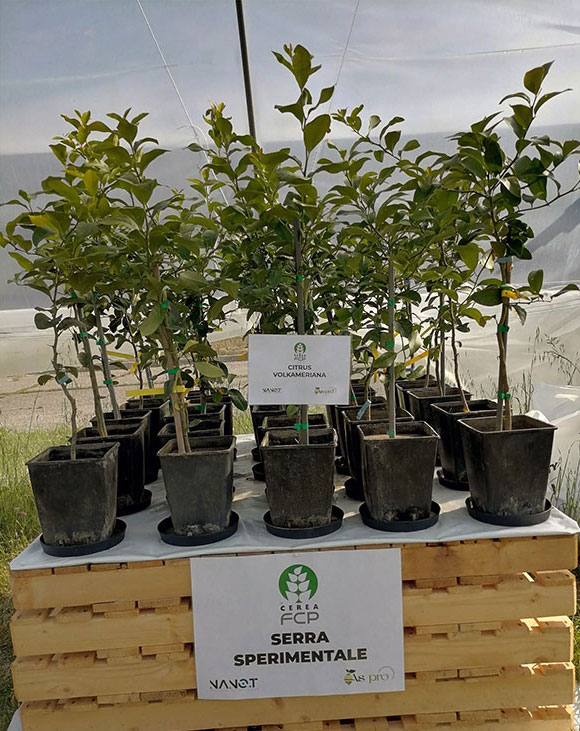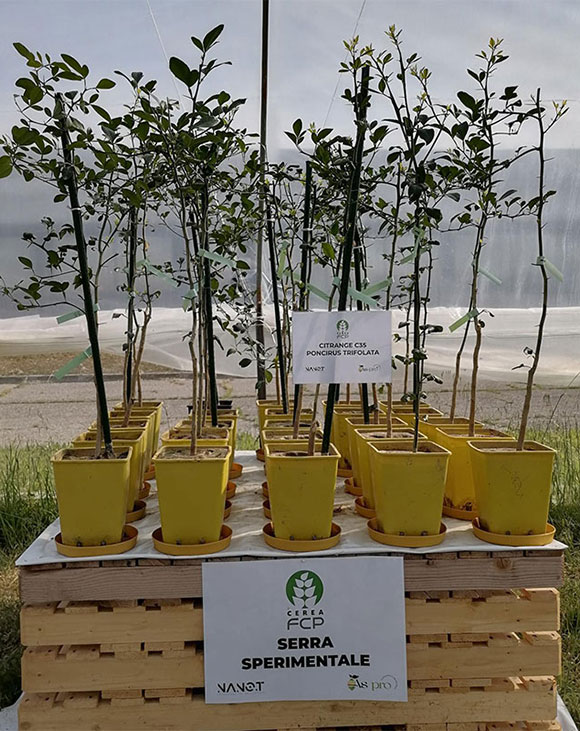As-pró is a project born from the collaboration between FCP Cerea and Research & Development institutions based in Sicily, european researchers and farmers. The name refers to one of the main characteristics of citrus fruits (aspro : sour), and it is also formed by the suffix PRO which points out concepts such as:
- innovation
- projectuality
with the aim of always looking ahead in space and time.
As-pró is thus the union of two essential starting points of the event which, by focusing on some of the most symbolic crops of Sicily, aims to promote and spread innovation in the agricultural field.
The first event taking place in May 30th will deal especially with problems related to iron chlorosis.
Symptoms of iron chlorosis in plants are generally caused by a low content of iron assimilable by the soil. This is called deficiency-induced chlorosis since the factors influencing it are:
- Particularly calcareous soils
- pH
- susceptibility of the rootstock
The Mediterranean area is particularly affected by this phenomenon, considering soil characteristics, thus also the two main citrus fruits producers in Europe: Italy and Spain.
The cultivated lands in Italy and Spain are approximately 150.000 and 300.000 ha over 500.000 ha of the entire continent (FAO data 2020).
In Italy, the most affected area is Sicily with 81.000 hectares (ISTAT data 2021) equal to 58% of the whole cultivation on the national territory, followed by Calabria with approximately 37.000 hectares.


For this reason, the first As-pró event will take place at the Oranfresh Conference hall in Catania, on Monday, May 30th from 4:00 p.m.; during the convention, organized in collaboration with Fruit Communication and the Order of Agronomists in Sicily, partners of the project will introduce the latest news to tackle the pathology and enhance yield.
Iron chlorosis has a significant economic impact since it negatively affects:
- the life cycle of the tree
- the number and dimension of fruits
- the quality and aspect of fruits
Iron plays an essential role in photosynthesis and this is the reason why iron deficiency symptoms in citrus fruits are mainly visible in leaves losing their bright green colour and taking shades from light green to pale yellow according to the severity of the disease (leaf yellowing). Iron deficiency also influences the development and growth of new plant organs: in this case, according to the severity of the disease, the plant may encounter an early defoliation of sprouts up to their death or a stunted growth of the root system.
Citrus fruits are efficient plants which, in conditions of iron deficiency, have developed adaptive mechanisms to increase both absorption and the carrier capacity of the element.
The defence strategy adopted by the farmer should take into account these mechanisms and assist the plant while carrying them out.
The knowledge of the physico-chemical characteristics of the soil and the best agricultural pratices are always recommended, in particular if they help to maintain a correct structure of the soil and an adequate quantity of organic matter. However, the choice of innovative rootstocks and the use of suitable products makes the difference in containing the disease.
FCP Cerea is testing with great results a new product based on nanotechnology in Sicily, Nano.T® Fe, and is investigating, through trials in its greenhouse on different rootstocks, the most effective strategies to tackle iron chlorosis.
Nanotechnology represents an innovative approach since the product, thanks to the tiny particles (<100 nm), does not precipitate in non-soluble forms and guarantees a major contact surface with roots as compared to common products. The acidic nature of Nano.t Fe (pH 1,3) also favours the acidification of the rhizosphere which is essential for the absorption of nutrients. Moreover, the product is completely degradable, not subject to leaching and slowly released according to plant demands since it is retained by the solid particles of the soil. The event of May, 30th will be the occasion to listen to some of the most prominent experts in citrus cultivation, to explore the technical aspects and to significantly improve yield.



